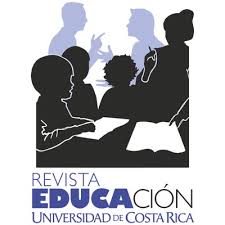Abstract
This essay has as its fundamental aim to raise awareness on the production of senses that education and human rights have in Chilean society, in the construction of the system and in the everyday experience. For that reason, it speaks firstly about education, and secondly about human rights, with the idea of constructing a methodology based on dialogue, where reflexivity and criticism take place. These pages support the thesis that education and human rights have a synergistic and reciprocally enriching relationship because the aim is to cultivate the humanizing experience in which the human being’s life is constituted. However, in many places in Latin America, as in Chile, the relationship between education and human rights, as a product of the economic, sociocultural and political conditions carried out in the last forty years, has not favored the construction of this system. This has been an exception and a product of the divorce between the senses and the perspectives of a country stitched with the needle of neoliberalism. As a conclusion, the importance of the relationship between education and human rights is underlined as a basis not only of a curriculum, but also of the pedagogical link as a critical input and as an affective, always powerful, form to construct ethical and cultural heritage that safeguard and enrich human relations.
References
Referencias extraídas
Aylwin, P. (1992). La transición chilena. Discursos escogidos marzo 1990-1992. Santigo, Chile: Ándres Bello.
Bourdieu, P. y Passeron, J. (2006). Los herederos, Los estudiantes y la cultura. Buenos Aires, Argentina: Siglo XXI.
Bourdieu, P. (2014). Capital cultural, escuela y espacio social. Buenos Aires, Argentina: Siglo XXI.
Comisión Nacional de Verdad y Reconciliación. (1991). Informe de la Comisión Nacional de Verdad y Reconciliación. Santiago, Chile: Ministerio Secretaría General de Gobierno.
Comisión Nacional sobre Prisión Política y Tortura. (2005). Informe de la Comisión Nacional Sobre Prisión Política y Tortura. Santiago, Chile: Ministerio Secretaría General de Gobierno.
Constitución Política de la República de Chile. (2005). Texto fundido. Recuperado de http://www.leychile.cl/Navegar?idNorma=242302
Corte Interamericana de Derechos Humanos. (2014). Caso Norín Catrimán y otros. Recuperado de http://www.corteidh.or.cr/docs/casos/articulos/seriec_279_esp.pdf
Cortés, P., Delgado, J. y García Campo, G. (2017). A quince años de intervención estatal violencia policial en la población La Legua. Santiago, Chile: Clínica de interés público y Derechos Humanos UDP. Comité de Defensa y Promoción de Derechos Humanos de La Legua.
Dussel, I. (2015). Deudas y desafíos de una nueva agenda en educación. Nueva Sociedad. Democracia y política en América Latina, 257, 66-76.
Freire, P. (2014). Pedagogía de la indignación. Cartas pedagógicas en un mundo revuelto. Buenos Aires, Argentina: Siglo XXI.
Han, B. C. (2016). Sobre el poder. Barcelona, España: Herder.
Kremerman, M. (2009). Radiografía del financiamiento de la educación chilena: diagnóstico, análisis y propuestas.Recuperado de https://goo.gl/tsCwWb
Lechner, N. (2006). Obras escogidas 1. Santiago de Chile: Lom.
Maturana, H. (1997). Emociones y lenguaje en educación y política (9ª ed.). Santiago, Chile: Dolmen.
Marshall, T. (1992). Citizenship and Social Class. [Ciudadanía y clase social]. London, England: Pluto Press.
Meuss, J., González, R. y Manzi, R. (2016). Ser blanco o moreno en Chile: El impacto de la apariencia en las expectativas educativas y las calificaciones escolares. En J. García, y R. Manzi (eds.). Abriendo las puertas del aula. Transformación de las prácticas docentes. pp. 515-542. Santiago, Chile: Universidad Católica de Chile.
Ordaz, P. (2014, 27 de noviembre). La cultura es la capacidad crítica de no creerse el centro del mundo. El País, sección Cultura. Recuperado de https://elpais.com/cultura/2014/11/27/actualidad/1417125974_227525.html
Organización de Nacional Unidas [ONU]. (1948). Declaración Universal de Derechos Humanos. Recuperado de http://www.un.org/es/universal-declaration-human-rights/
Ortega, E., y Güell, P. (Coords.). (2004). Desarrollo humano en Chile, el poder: ¿para qué y para quién?, Santiago, Chile: PNUD
Ortega y Gasset, J. (1936). El Espectador, Tomo I. Santiago, Chile: Extra.
Osorio, J. (2003). Educación en derechos humanos. Persona y sociedad, 3(17), 193-208.
Oyarzún, J. (2017). ¿Valor agregado? Reflexión sobre el fundamento en que descansa nuestro valor como humanidad. En P. Achondo y P. Álvarez (Coords.), Si estos callan, las piedras gritarán (Lc 19, 40), ensayos de teología práctica
interdisciplinar. (pp. 101-117). Santiago, Chile: Lom.
Parra, N. (1992). Ya no sueño. En Pichanga, profecías a falta de ecuaciones. Recuperado de https://bit.ly/2EqTnTi
Programa de las Naciones Unidas para el Desarrollo [PNUD]. (2004). La democracia en América Latina. Buenos Aires, Argentina: Taurus.
Salazar, G. (1988). Los dilemas históricos de la auto-educación popular en Chile ¿integración o autonomía relativa?. Proposiciones,
, 84-129.
Silva, I. (2017). Formación docente para la justicia social en un Chile desigual. En Silva, Ilich., Diniz, Julio., Zeichner, Ken. Justicia social. La dimensión olvidada de la formación docente. (pp. 121-144). Santiago, Chile: Mutante.
Stern, S. (2009). Recordando el Chile de Pinochet. En vísperas de Londres. Santiago, Chile: Universidad Diego Portales.
Tedesco, J. (2000). Educar en la sociedad del conocimiento. México: Fondo de Cultura Económica.







